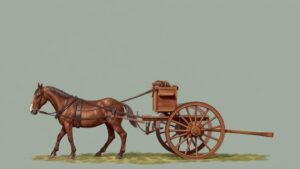Accessing State and National Archives for Leads on Hidden Historic Wealth
Accessing State and National Archives for Leads on Hidden Historic Wealth
The pursuit of hidden historic wealth is a captivating endeavor that intertwines history, economics, and the fine art of research. Accessing state and national archives offers a formidable avenue for uncovering clues regarding untapped wealth, ranging from unclaimed estates to forgotten treasures. This article explores the methodologies for accessing these archives, the types of hidden wealth that may be discovered, and the historical significance of these findings.
Understanding Archives: A Definition
Archives are institutions that collect, preserve, and make accessible documents and records of historical value. serve as repositories for a variety of materials, including government documents, personal papers, photographs, and maps. State and national archives in the United States, such as the National Archives and Records Administration (NARA) and various state-level archives, hold a wealth of information that can lead to significant discoveries.
Types of Hidden Historic Wealth
- Unclaimed Estates: These can include property, bank accounts, and valuable personal belongings.
- Historical Assets: Items such as fine art, manuscripts, and important artifacts.
- Intellectual Property: Rights to original works that may still hold value.
- Financial Accounts: Unresolved estates often involve money held in trust or government accounts.
Accessing State Archives
State archives can serve as a treasure trove for researchers seeking hidden wealth. Each state has its own archiving system, often managed by the state secretary of state or a designated archival institution.
Research Methodologies
To effectively navigate state archives, researchers should consider the following methodologies:
- Online Portals: Many state archives provide digitized collections available for public viewing. For example, California’s Digital Archives offer access to various historical records.
- In-Person Research: Physical visits to archives may yield records not yet digitized. Establish appointments when necessary as many archives have limited access protocols.
- Consulting Archival Staff: Archivists possess extensive knowledge about the collections and can provide invaluable guidance on locating specific records.
Accessing National Archives
The National Archives and Records Administration (NARA) stores crucial records that reflect the nations history. These include treaties, military records, and bank records.
Specific Programs and Resources
NARA offers several programs to assist individuals in locating historical wealth:
- Archives.gov: The official website hosts a comprehensive catalog of archived materials along with guides on how to access specific types of documents.
- Research Rooms: In major cities like Washington, D.C., researchers can physically access a vast array of documents.
- Specialized Repositories: NARA collaborates with other institutions, enhancing accessibility to unique collections, such as the Library of Congress.
Case Studies: Successful Discoveries
The efficacy of utilizing archives is best illustrated by documented case studies. One notable case involves the recovery of a cache of colonial documents in Virginia that led to the discovery of unclaimed properties valued at more than $5 million. In another instance, research into estate records in New York revealed several historical artworks hidden in private collections that became part of public exhibits.
Challenges in Accessing Archives
Despite the wealth of information held in archives, several barriers can hinder access:
- Access Restrictions: Some records may be restricted due to privacy laws or ongoing investigations.
- Limited Knowledge: The obscure nature of archival documents often requires specialized skills in historical research.
- Technical Barriers: Navigating digitized formats or finding available records can be challenging without adequate digital literacy.
Actionable Takeaways
For researchers seeking to unlock hidden historic wealth in state and national archives, the following steps are recommended:
- Identify specific archives relevant to your area of interest.
- Use both online and in-person resources to gather comprehensive data.
- Engage with archival professionals for expert insights.
- Document your findings meticulously to validate claims of wealth or ownership.
Conclusion
Accessing state and national archives is a vital practice for uncovering hidden historic wealth. Through methodical research and the utilization of available resources, researchers can uncover valuable assets that have been left buried in the annals of history. collaborative efforts between individuals and archival institutions pave the way for new discoveries that not only enrich personal history but contribute significantly to our collective heritage.

